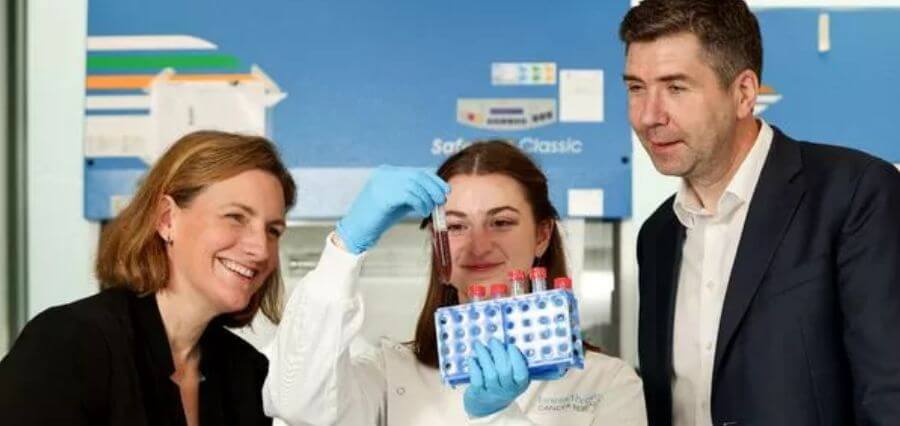Breakthrough Cancer Research, a cancer-focused medical research charity, has unveiled a new €115k partnership with Royal London Ireland, one of the prominent life insurance and pensions companies in Ireland, aimed at addressing the disparities in survival rates among certain cancers. While advancements in awareness, screenings, and research innovations have elevated the 5-year survival rates for cancers such as breast and prostate cancer to over 88%, other types like pancreatic, esophageal, lung, liver, ovarian, stomach, and brain cancers have not experienced comparable progress. Some of these cancers currently exhibit a dismal 5-year survival rate as low as 14%.
The collaboration will primarily allocate funds to research projects within the Breakthrough Cancer Research innovation fund, focusing on cancers with the lowest survival rates in Ireland. Additionally, it will support the development of evidence-based materials, training, and resources to enhance awareness, dismantle barriers to health education, and debunk misconceptions surrounding cancer.
Half of the population in Ireland will face a cancer diagnosis at some stage in their lives, with one individual succumbing to the disease every hour. Cancer disparities, influenced by factors like socioeconomic status, education, gender, ethnicity, age, and geographical location, significantly impact health outcomes, particularly concerning cancer.
Orla Dolan, CEO of Breakthrough Cancer Research, emphasized the pivotal role of research in increasing cancer survival rates. Over the past five decades, research has transformed cancer outcomes, with the five-year survival rates for breast and prostate cancer surpassing 88% and 93% respectively, compared to less than 50% half a century ago.
Dolan underscored the importance of directing more funding towards targeted research efforts, highlighting the partnership with Royal London Ireland as instrumental in advancing research goals aimed at addressing cancer inequalities and enhancing survival rates. This collaboration will support initiatives spanning early diagnosis, screening, and innovative treatments for challenging cancers, ultimately ensuring comprehensive care for all individuals affected by cancer and saving more lives.





